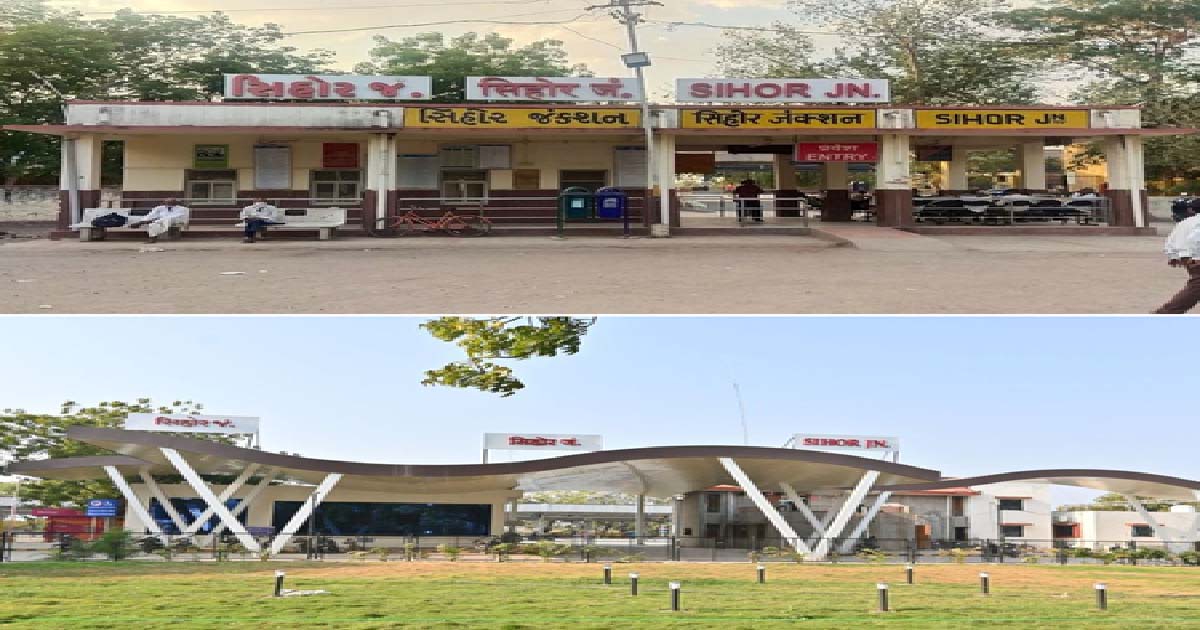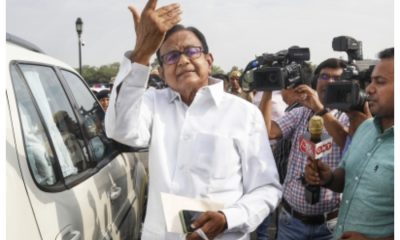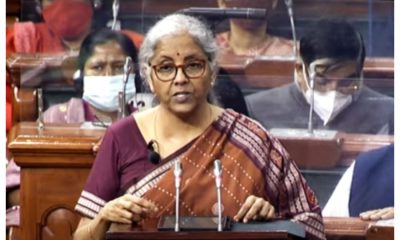Business
Sitharaman attends FMCBG meeting in Washington D.C.
Union Minister for Finance & Corporate Affairs Nirmala Sitharaman participated in the 4th G20 Finance Ministers and Central Bank Governors (FMCBG) Meeting under the Italian Presidency held on October 13 in Washington D.C. on the sidelines of the IMF-World Bank Annual Meetings.
The meeting was the final FMCBG Meeting under the G20 Italian Presidency and saw discussions and agreements on various issues concerning global economic recovery, pandemic support to vulnerable countries, global health, climate action, international taxation and financial sector issues.
For a sustained recovery from the pandemic, the G20 Finance Ministers and Central Bank Governors agreed to avoid any premature withdrawal of support measures, while preserving financial stability and long-term fiscal sustainability, and safeguarding against downside risks and negative spillovers.
Sitharaman noted that for transitioning from crisis to recovery, one of the major challenges is ensuring equitable access to vaccines for all. The Finance Minister suggested that keeping up the support, building resilience, enhancing productivity and structural reforms should be our policy goals.
The Finance Minister appreciated the role of G20 in rallying pandemic response and supporting vulnerable countries through debt relief measures and the new SDR allocation. Going forward, Sitharaman suggested on focusing efforts on making the benefits reach the intended countries.
The Finance Minister joined the G20 Ministers and Governors in agreeing on the need for strengthening efforts to counter climate change. Sitharaman emphasised that considering the varied policy spaces and different starting points of countries, the centrality of climate justice based on United Nations’ Framework Convention on Climate Change and principles of Paris Agreement would be critical for taking forward discussions towards successful outcomes.
For addressing tax challenges arising from the digitalisation of the economy, the G20 FMCBGs endorsed the final agreement as set out in the Statement on a two-pillar solution and the Detailed Implementation Plan released by the OECD/G20 Inclusive Framework on Base Erosion and Profit Shifting (BEPS) on October 8, 2021.
The meeting concluded with the G20 FMCBGs reaffirming their commitment to advance the forward-looking agenda set in the G20 Action Plan to steer the global economy towards a strong, sustainable, balanced and inclusive growth.
Business
IndiGo Crisis: 75-Yr-Old Woman Waits Hours For Luggage Without Medicines At Mumbai T2 Airport

Mumbai, Dec 05: When IndiGo’s nationwide operational meltdown began disrupting flights earlier this week, thousands of passengers were caught in chaos across the country. Among them was a 75-year-old woman whose ordeal at Mumbai’s Terminal 2 gained attention after her daughter shared a distressed post on X. Thankfully, the woman has now reached home safely, but her experience reflects the scale of frustration travellers are facing.
In her post on X, Punita Toraskar wrote that her elderly mother had been waiting at T2 since noon, and even by 4:42 pm, she still hadn’t received her luggage. The situation was more alarming because the 75-year-old needed to take her medicines but was stuck waiting on an empty stomach, stranded amid the airport chaos.
Toraskar’s post quickly resonated with passengers across India who have been struggling with severe delays, cancellations, and a complete breakdown of communication from India’s largest airline.
IndiGo is currently grappling with one of the biggest operational crises in its history. Nearly 900 flights have been cancelled since Tuesday, triggered by a mix of staff shortages and the airline’s struggle to adapt to stringent new crew duty regulations.
Passengers at major airports — Delhi, Hyderabad, Bengaluru, and Kolkata — are facing hours-long queues, mounting delays, and skyrocketing airfares as alternative flight options shrink. Hotels are filling up, tempers are rising, and social media is flooded with frustration.
IndiGo has issued public apologies and claims it is rebooting its systems and schedules to stabilise operations. But for many travellers like Toraskar’s mother, the damage is already done.
Despite the turmoil, Punita confirmed later that her mother had finally reached home safely, a small relief in a week of aviation chaos.
Business
Rs 7,253 crore spent so far in 2025-26 on sprucing up railway stations in India: Vaishnaw

New Delhi, Dec 5: The government has spent Rs 7,253 crore so far (up to October), of the total budgetary allocation of Rs 12,118 crore for 2025–26, on the redevelopment of railway stations across the country under the Amrit Bharat Station Scheme, Railway Minister Ashwini Vaishnaw informed Parliament on Friday.
The minister stated in a written reply to a question in the Rajya Sabha that work is in progress at a good pace for the development of stations such as Tirupati, Yesvantpur, Rameswaram, and Safdarjung station in Delhi..
So far, 1,337 stations have been identified for development under this scheme since it was launched, of which 155 stations have been completed till now.
Vaishnaw said that the station development projects under the Amrit Bharat Station Scheme are primarily conceptualised with budgetary support. However, 15 stations have been identified to be explored for development under the Public Private Partnership (PPP) mode also and based on the experience gained from the same, further evolution of the scheme is envisaged.
He further stated that the ownership of stations and operations-related activity will be with the Indian Railways. However, for some identified major stations, specific activities or groups of activities may be entrusted to outside sources for specified tenures depending upon the type of activity, requirements of the station, demand, etc. The terms of the contract are decided on a case-by-case basis.
He said that the Amrit Bharat Station Scheme for the redevelopment of stations has been launched with a long-term approach.
The scheme involves the preparation of master plans and their implementation in phases to improve the stations. The master planning includes improvement of access to the station and circulating areas, integration of the station with both sides of the city, improvement of the station building and improvement of waiting halls, toilets, sitting arrangement, and water booths.
The redevelopment plans also include provision of wider foot over bridge or air concourse commensurate with passenger traffic, provision of lifts, escalators and ramps, improvement of platform surface and cover over platforms and provision of kiosks for local products through schemes like ‘One Station One Product’.
Besides, the construction of parking areas, multimodal integration, amenities for Divyangjans, better passenger information systems, provision of executive lounges, nominated spaces for business meetings and landscaping is being taken up, keeping in view the necessity at each station, Vaishnaw said.
The scheme also envisages sustainable and environment-friendly solutions, provision of ballastless tracks, etc., as per necessity, phasing and feasibility and creation of a city centre at the station in the long term, the minister added.
Business
India-Russia friendship steady like pole star amid global uncertainty: PM Modi

New Delhi, Dec 5: Hailing India-Russia ties, Prime Minister Narendra Modi on Friday said that the friendship between the two countries has remained like a pole star amidst the ups and downs faced by the world in the past 80 years.
While making a joint press statement with Russian President Vladimir Putin following their talks at the Hyderabad House in New Delhi on Friday, PM Modi said that the ties between two nations have stood the test of time and thanked Putin for his friendship and unwavering commitment to India while recalling the efforts made by the Russian leadership to elevate bilateral ties.
“Today, I am delighted to welcome President Putin to the 23rd India-Russia Summit today. His visit comes at a time when our bilateral relations are experiencing several historic milestones. 25 years back, President Putin laid the foundation for our strategic partnership. 15 years ago, in 2010, our partnership was granted the status of a Special Privileged Strategic Partnership. For the past two and a half decades, he (President Putin) has nurtured this relationship with his leadership and vision.
“His (President Putin) leadership, under all circumstances, has elevated our ties to new heights. I express my heartfelt gratitude to President Putin, my friend, for this deep friendship and unwavering commitment to India. The world has seen many ups and downs over the past eight decades. Humanity has faced many challenges and crises and amidst all this, the India-Russia friendship has remained like a pole star. This relationship, founded on mutual respect and deep trust, has always stood the test of time,” he added.
Recalling recent heinous terror attacks in both countries, PM Modi said that India and Russia have stood together in the fight against terrorism.
“Today we also discussed regional and global issues. India and Russia have long cooperated shoulder to shoulder in the fight against terrorism. Whether it’s the terrorist attack in Pahalgam or the cowardly attack on Crocus City Hall — the root of all these incidents is the same. India firmly believes that terrorism is a direct attack on the values of humanity and global unity against it (terrorism) is our greatest strength.”
PM Modi announced that India and Russia will cooperate to train Indian seafarers in polar waters. “We will now cooperate to train Indian seafarers in polar waters. This will not only strengthen our cooperation in the Arctic, but will also create new employment opportunities for India’s youth.”
Reiterating India’s stance on Ukraine conflict, he said, “India has advocated for peace in Ukraine from the very beginning. We welcome all efforts to find a peaceful and lasting solution to this issue. India has always been ready to contribute and will continue to do so.”
PM Modi also termed energy security as a strong and important pillar of India-Russia partnership. He stated that cooperation between India and Russia in civil nuclear energy has been crucial in realising shared clean energy priorities.
“Energy security has been a strong and important pillar of the India-Russia partnership. Our decades-old cooperation in civil nuclear energy has been crucial in realising our shared clean energy priorities. We will continue this win-win cooperation. Our cooperation in critical minerals is crucial to ensuring secure and diversified supply chains across the world,” stated PM Modi.
Earlier, taking the India-Russia Special and Privileged Partnership ahead, PM Modi warmly welcomed President Putin at the Hyderabad House to participate in the 23rd India-Russia Annual Summit.
With both countries sharing a longstanding and time-tested bond, the two leaders are holding comprehensive and detailed discussions aimed at further strengthening the bilateral relations.
-

 Crime3 years ago
Crime3 years agoClass 10 student jumps to death in Jaipur
-

 Maharashtra1 year ago
Maharashtra1 year agoMumbai Local Train Update: Central Railway’s New Timetable Comes Into Effect; Check Full List Of Revised Timings & Stations
-

 Maharashtra1 year ago
Maharashtra1 year agoMumbai To Go Toll-Free Tonight! Maharashtra Govt Announces Complete Toll Waiver For Light Motor Vehicles At All 5 Entry Points Of City
-

 Maharashtra1 year ago
Maharashtra1 year agoFalse photo of Imtiaz Jaleel’s rally, exposing the fooling conspiracy
-

 National News1 year ago
National News1 year agoMinistry of Railways rolls out Special Drive 4.0 with focus on digitisation, cleanliness, inclusiveness and grievance redressal
-

 Maharashtra1 year ago
Maharashtra1 year agoMaharashtra Elections 2024: Mumbai Metro & BEST Services Extended Till Midnight On Voting Day
-

 National News1 year ago
National News1 year agoJ&K: 4 Jawans Killed, 28 Injured After Bus Carrying BSF Personnel For Poll Duty Falls Into Gorge In Budgam; Terrifying Visuals Surface
-

 Crime1 year ago
Crime1 year agoBaba Siddique Murder: Mumbai Police Unable To Get Lawrence Bishnoi Custody Due To Home Ministry Order, Says Report
















